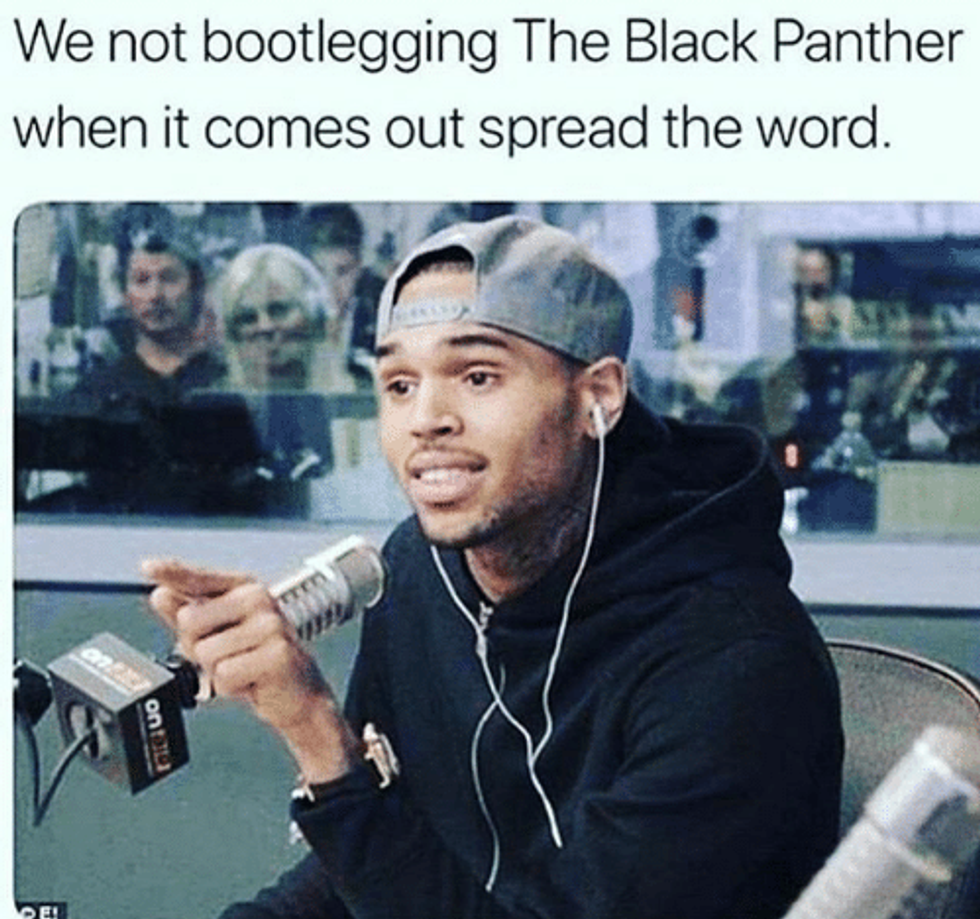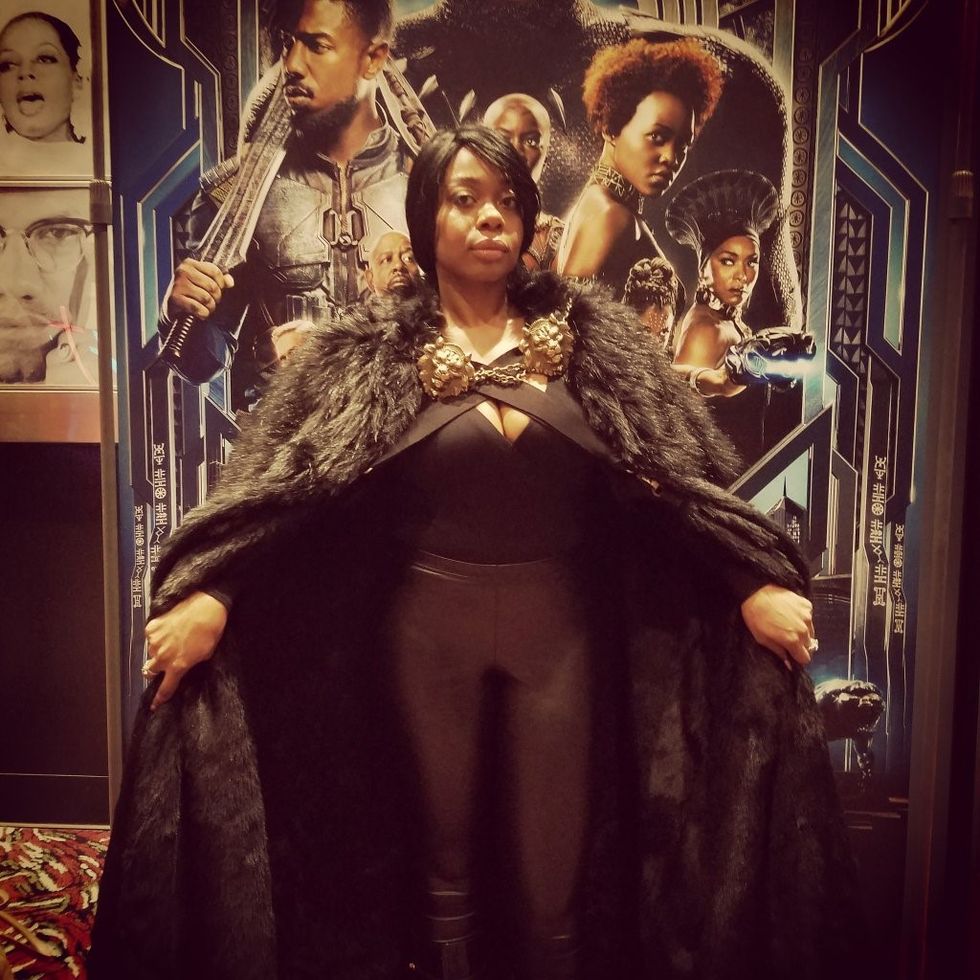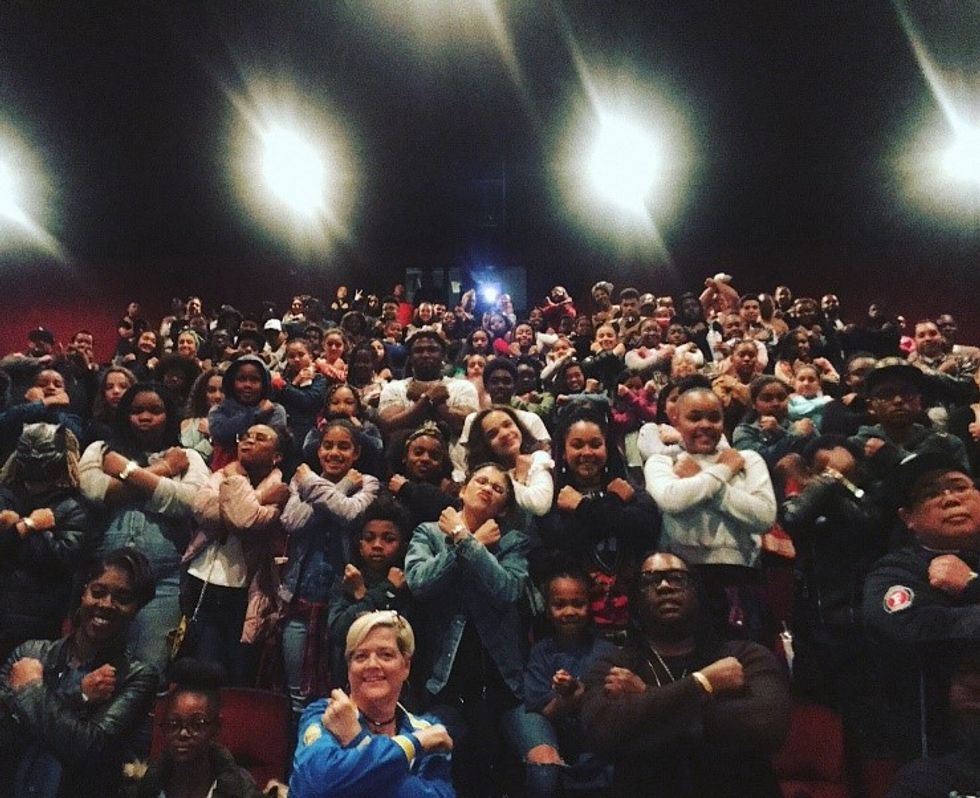The moment it was announced that the movie "Black Panther" was coming to the big screen, a powerful movement of communities upon communities of black people began to ensue. The movie "Black Panther" was no longer just a movie, but a movement that empowered black communities across the world to band together for support.
Even before the movie was released, black people on Twitter began showing their support of the movie through memes and hashtags. One meme called for people not to bootleg the movie to allow the movie to generate revenue, and although the memes were primarily used for laughs, they also showed the protectiveness that the black community had towards "Black Panther" and its success.
After the movie was released, the excitement didn’t stop, as the hashtag #WakandaCameToSlay came to be. This showed the appreciation people had for the movie because of its representation of African culture. The movie gave black people an outlet to dress in clothing that made them feel closer to their African roots -- something that many, like myself, were not prompted to do before the movie. Many dressed in traditional African-style clothing to see the movie. They used their outfits not only to honor the characters in the movie, but also to show that they were proud of a movie that offered a positive representation of the black community. The social movement ignited by the movie made "Black Panther" the most tweeted about movie in 2018 garnering 5 million tweets to celebrate the movie.
Not only did the movie alter communities socially, but it also altered them socially as celebrities like Zendaya, Octavia Spencer, and Serena Williams, bought out theaters so that people, particularly children, could go see the movie. These celebrities were prompted to send children to see the movie because "Black Panther" is one of the few movies containing an almost all-black cast that shows black people as multifaceted, and not just as tokens and/or the stereotypes we are forced into. The movie showed all those watching that they have a choice in who they become and how they react to situations through positive representation.
The movie didn’t only cause a wave socially, but "Black Panther" also shifted Hollywood’s perspective on “black movies” and how they sell. So many times, movies featuring a black cast are likened to their own section, away from mainstream movies. For example, a comedy featuring a black case wouldn’t just be a comedy, it would be a “black comedy.” This harmful narrative pushes the idea that black movies do not sell -- especially overseas. "Black Panther," however, destroyed the narrative that movies featuring black people are not interesting to people not in the black communities of North America. The movie grossed $700 million in American and overseas only in its second week. "Black Panther," along with movies like “Get Out” and “Girls’ Trip,” has given a new perspective on what a movie starring black people can amount to.
More than anything, "Black Panther" showed the diversity of black communities, especially by reaffirming the fact Africa is not a country, but rather a continent -- something that is forgotten way too often. The range of diversity shown in "Black Panther" erases the idea that all black people share one identity, and that even though we have common factors, we can still be different.





















